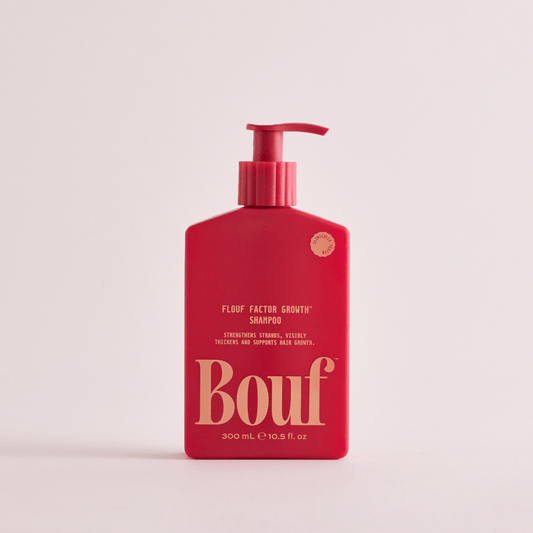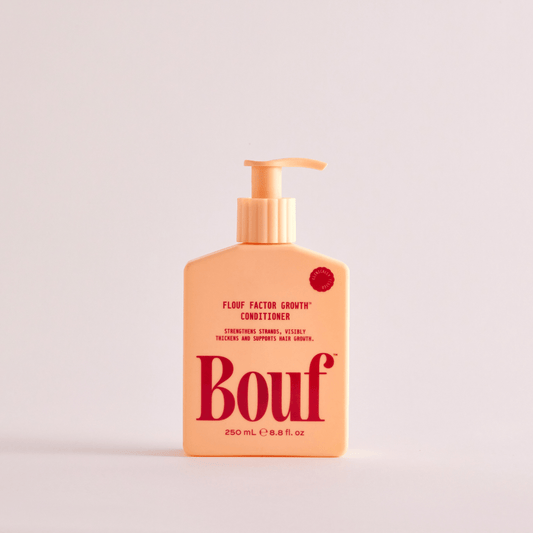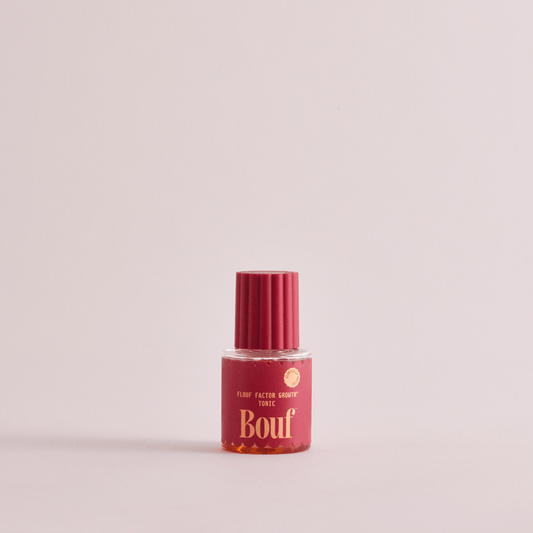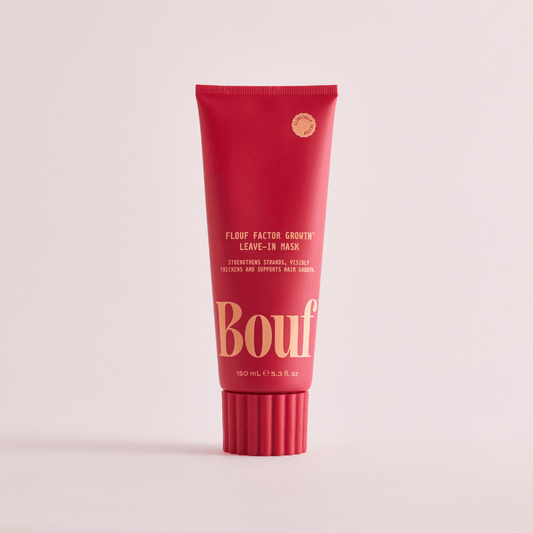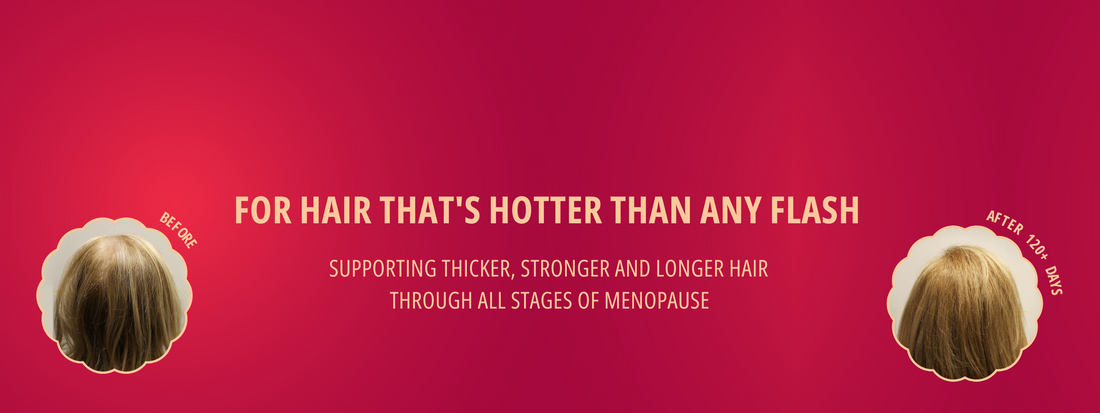
Menopause messing with your hair?
Menopause changes a lot - your sleep, your skin, your mood, your perception of temperature… and, for many, your hair. Research shows that over 50% of those going through perimenopause and menopause will experience noticeable hair thinning.
What does menopausal hair loss look like?
For some, it’s gradual: a widening part, a lighter ponytail, more strands left behind in the shower. For others, the change is more sudden - and just as confronting. Perimenopause, the transitional stage leading up to menopause, can last anywhere from 4 to 10 years - and it’s when most first notice their hair starting to thin and its texture starting to change.
What's behind menopausal hair loss?
Unsurprisingly, the cocktail of hormonal shifts is to blame. As oestrogen and progesterone levels drop, the hair growth phase shortens, leading to slower growth and increased shedding. At the same time, dipping oestrogen leaves the door open for more DHT (a by-product of testosterone) to bind to follicles, shrinking them over time.
Hormones like cortisol, potential thyroid fluctuations, and nutritional gaps (iron, zinc, vitamin D), are also at play so now, your once-thick locks are battling all sides.
When our hair starts to thin, the emotional impact can be just as profound as the physical one. You’re already going through a lot, you shouldn’t have to worry about all of a sudden having a different head of hair.
What can I do to help it?
Enter Bouf. At the heart of our range is its Flouf Factor Growth™ Tonic, designed to tackle one of the key players in hair shedding: FGF5, a protein that signals the hair to stop growing. By inhibiting FGF5, Bouf helps prolong the hair’s growth phase - giving follicles a fighting chance to produce thicker, fuller strands.
Backed by clinical studies showing 20% faster hair growth, Bouf’s tonic works alongside a targeted range - including strengthening shampoos, conditioners, leave-in masks, and hair health supplements - to create an ecosystem for better growth. The supplements even support stress resilience, an important factor when cortisol is adding fuel to the fire.
Who can Bouf help?
Whether you’re in the early days of perimenopause or well into the post-menopausal years, your hair’s needs will shift, but here’s the good news, the science stays the same: protect the follicles, prolong growth, and reduce breakage.
Menopause doesn’t have to mean the end of full, healthy hair. With the right science in your corner, there are still plenty of good hair days ahead.
